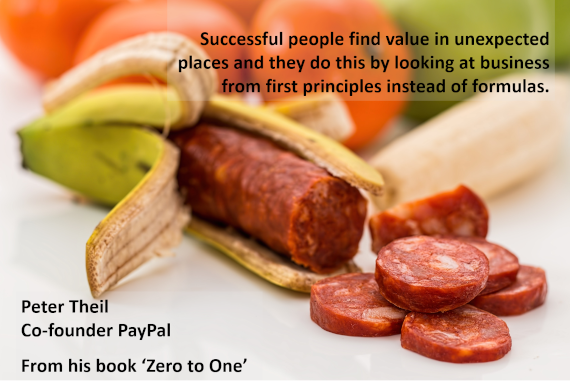Dear reader,
Welcome to the November 2020 edition of The Director's Dilemma. Each month this newsletter looks at a real-life scenario that happened to a board, perhaps to a board like yours, and considers a range of responses. The scenarios are de-identified to protect the individuals concerned.
Our dilemma this month looks at how other people can make life difficult for a board that has not been party to any wrongdoing. And at how boards can add value regardless of this.
I have over twenty-two years' experience consulting to, and serving on, boards. It is a pleasure to share some of it with you in this newsletter and I would be even more delighted to share it with you when your board needs a performance review, strategy workshop, or director education session.
To read this email in a web browser, go to www.mclellan.com.au/newsletter.html and click on 'read the latest issue'. I hope you will enjoy the latest dilemma:

Brinley Chairs a government-owned board that opperates in the community services sector. Some of the company's revenues are from 'payment for service' with the rest being funded by various grants which usually operate for several years and give a reasonable spread of funding sources across government departments and programs.
A few months ago Briney's company was awarded a large grant for a three-year program. Everyone was delighted and the funds were very soon allocated to outsourced service-providers and spent on getting the foundations right for service delivery.
Last week the press has been full of reports that the grant program was manipulated, and funds were allocated to projects in marginal seats. Yesterday the Minister was asked about this in parliament and responded that the funds would be 'clawed back' and reallocated.
Brinley is aghast. His company has committed the funds and already spent much of the money. It will be costly and difficult to rescind contracts already awarded. He is also smarting at the injustice; his board has done nothing wrong and neither have the intended beneficiaries of the program. Yet now they face uncertainty and potential inability to deliver.
The chair of the Audit Committee has called Brinley and asked what the board is going to do.
What can Brinley say?


 Brinley should tell his Audit and Risk Chair not to panic just yet; the company has – hopefully – done nothing wrong. They should not suffer as a result of alleged political malfeasance.
Brinley should tell his Audit and Risk Chair not to panic just yet; the company has – hopefully – done nothing wrong. They should not suffer as a result of alleged political malfeasance.


